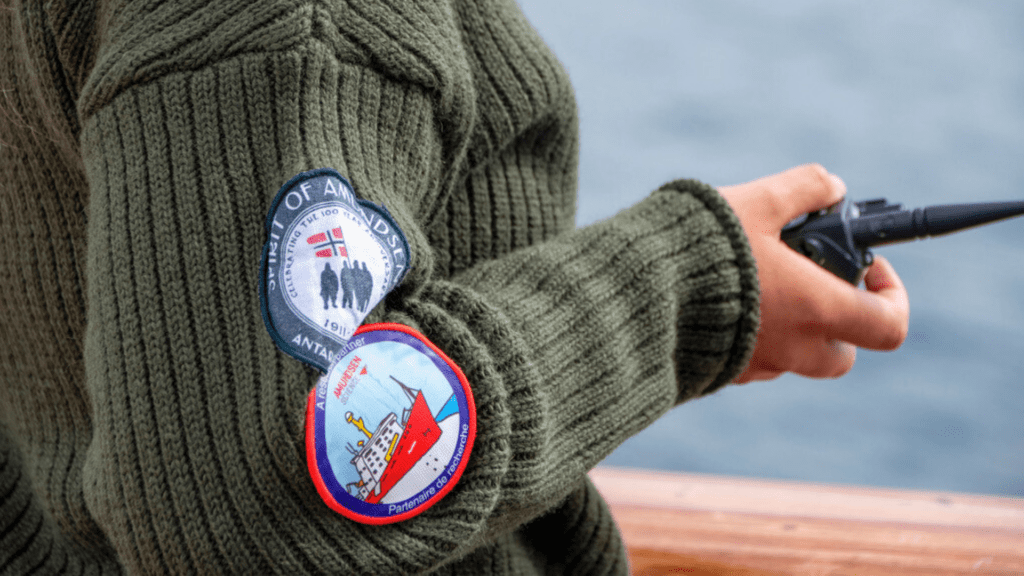Québec City, June 18, 2025 – On June 27, Canada’s only Arctic research icebreaker, the CCGS Amundsen will depart from Québec City on a 114-day scientific expedition along the Nunatsiavut coast of the Labrador Sea to the Arctic Ocean, through Davis Strait and Baffin Bay. Led by Amundsen Science in partnership with the Canadian Coast Guard, this ambitious scientific expedition brings together more than 165 scientists and professionals from eleven Canadian universities, federal departments, research organizations, and Inuit communities. The multidisciplinary teams will carry out seven major research programs focused on better understanding the environmental and ecological transformations occurring in the North.
“The 2025 Amundsen Expedition will enable us, expand our unique long-term datasets, to explore less-visited regions of the Arctic Ocean, and to demonstrate Canada’s sovereignty over its Arctic waters. Our critical work will better position Canada to address the complex challenges of the changing North,” says Alexandre Forest, Executive Director at Amundsen Science.
The Amundsen will begin its scientific journey along the North Shore of the St. Lawrence River, continue on to the Labrador Sea, and across the Davis Strait, where the Amundsen’s Remotely Operated Vehicle (ROV) together with its other core scientific equipment will be used to explore deep sea ecosystems and fragile habitats as part of the Mecatina Trough Survey, Imappivut and Benthic Refuges research programs over the initial six weeks period. Objectives of the multi-disciplinary and co-developed research programs will include exploring biodiversity hotspots through broad ecosystem surveys to support the Nunatsiavut Government’s Imappivut marine spatial planning and various federal marine conservation initatives.
The following four weeks segment in Baffin Bay will support the KEBABB and newly-funded Transforming Climate Action (TCA) programs, both designed to gather data and samples to improve understanding of coastal and marine ecosystem processes in key areas of interest, particularly in relationship to emerging fisheries, aquatic biodiversity, geo-ecology, carbon cycling, and environmental biomonitoring.
“The Department of Fisheries and Oceans Canada’s program KEBABB – Knowledge and Ecosystem-Based Approach in Baffin Bay – will lead operations aboard the Amundsen for the sixth year in a row,” explains Monika Pucko, Biologist and KEBABB Co-Lead. “This year’s plan includes sampling across nine transects in Baffin Bay, including new transects in Davis Strait.”
The Arctic journey of the Amundsen will further continue into the ice-covered waters of the northernmost regions of the Canadian Arctic Archipelago for four weeks as part of the Queen Elizabeth Islands Survey, a first for the research icebreaker in more than 20 years of operations. The presence of thick, multiyear sea ice usually limits access to this remote region, but careful preparation and adapting to on-site conditions will maximize the chances of success of this innovative program, which aims to gain knowledge about freshwater pathways, ice-ocean interactions and changing ice conditions of some lesser-known areas of the Arctic Ocean.
The final three weeks segment will see the Amundsen transit the Fury and Hecla Strait, Foxe Basin and Hudson Strait as part of the second phase of the FoxSIPP program. The FoxSIPP program aims to investigate the chemistry of the deep water that is formed annually in Foxe Basin and drains into Foxe Channel. In addition, this Leg will include operations supporting community priorities with respect to underwater noise and ship traffic, before the Amundsen returns to Québec City on October 20th.
The 2025 Amundsen Expedition will also feature three Science and Cultural Days in Inuit communities, with the first one being held in Makkovik, Nunatsiavut, on July 16th. These events are being co-organized with Inuit partners, and will allow research teams to learn about community perspectives, celebrate Inuit culture, and exchange bilateral knowledge on Arctic research, sustainable development and environmental changes.
An opportunity to capture the Amundsen’s departure in Québec City
The CCGS Amundsen’s departure from Québec City, expected between 6:00 and 7:00 p.m. EDT on June 27th, offers a visual opportunity: Canada’s iconic research icebreaker setting off into the North for an inclusive and crucial research mission at sea for the country. Media are invited to attend the departure in person at the Coast Guard base to capture photos and footage (RSVP). Interviews with scientists and mission leads will be available before departure, or live from the ship the following morning.



